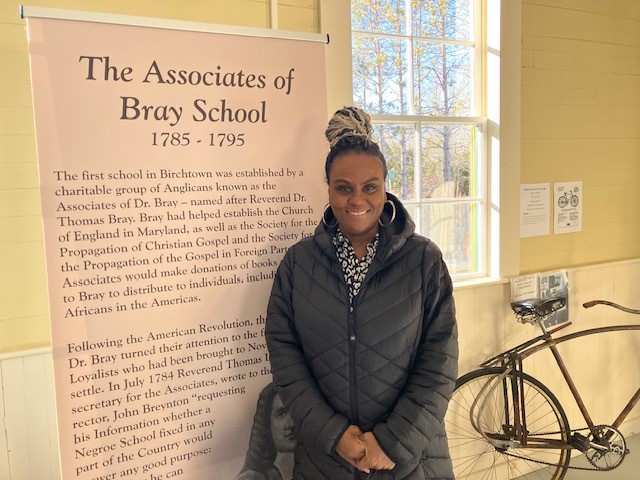Tucked hundreds of kilometres away from Halifax lies an old schoolhouse in Birchtown, N.S.

It was constructed in the 1800s and remained open until 1961.
“In that time that I was here it was about six classes, but years ago it was 10 classes in here with one teacher,” says Darrell Acker, a former student at the school.

Nowadays, Acker works to maintain the school’s property and says its a great tourist attraction with important historical roots.
“It tells about the history and the struggles that went on here years ago and things like that.”

Get daily National news
The one-room schoolhouse was acquired by the Black Loyalist Heritage Society. It’s now a museum, showcasing stories of the Black Loyalists.
“I have noticed that everyone that comes here, white or Black or otherwise, always wants to learn more,” says Andrea Davis, the executive director of the Black Loyalist Heritage Society.

Davis is an eighth generation descendant of the Black Loyalists.
She originally grew up in Shelburne, N.S., but moved away after feeling like she didn’t belong due to the colour of her skin.
She says it was ultimately the historic ties, and her ancestors, that brought her back home.
“I decided that this is the place where I belong,” Davis says. “The ancestors had redirected me to come back home to Shelburne.”
Having never learned about the Black Loyalists during her time in the Shelburne education system, Davis says she is committed to uncovering the immeasurable number of untold stories of her ancestors.
“I could see that this was definitely a need for the black community,” Davis says.
“Education still is, hence the reason why we’ve set this up as a schoolhouse so we can continue that learning process.”
- Stepfather of two missing N.S. kids charged with sexual assault of adult, forcible confinement
- Trump threatens Canada with 50% tariff on aircraft sold to U.S.
- Canadians have billions in uncashed cheques, rebates. Are you one of them?
- First Nations raise alarm over ICE detentions, urge caution crossing U.S. border
More than 3,000 Black Loyalists arrived on the shores of Nova Scotia and New Brunswick in the late 1700s.
Although some were free, many were not.
Davis says she hopes the schoolhouse can once-again operate as a learning institution and be back in-session for today’s generation of students.
“I would love to be able to set up this as a classroom setting where our students today could come in and this could be part of the curriculum,” she says.
“If these walls could talk, I’m sure there would be a lot of stories that are untold, good and bad, that we’d want to hear about.”








Comments